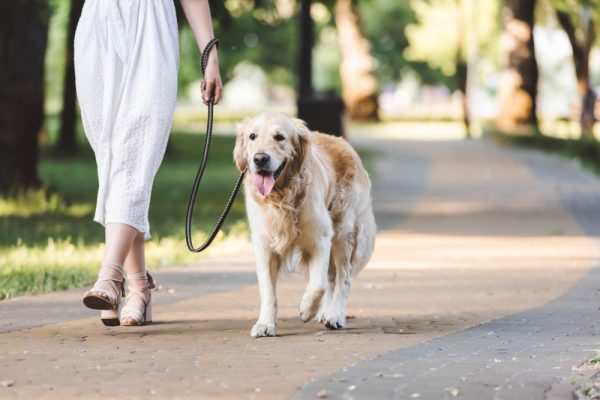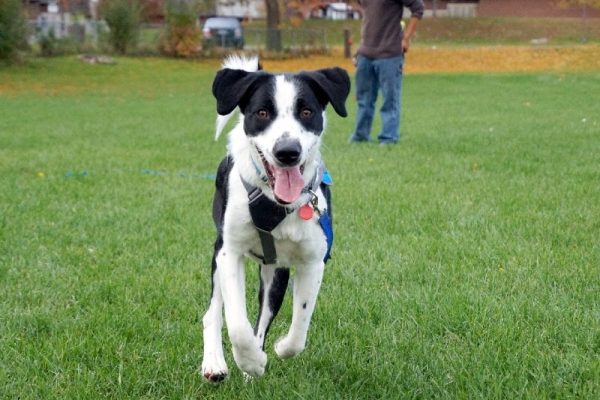According to the CDC, nearly 25 million Americans have asthma.1 Symptoms of this respiratory condition include wheezing, coughing, and shortness of breath due to the tightening of airways and excessive mucus production. Allergens or airborne irritants can trigger an attack. Exercise can also lead to difficulty breathing. Since dogs share 84% of our DNA, you may wonder if they can have this issue, too.
Our canine companions can develop asthma, although it’s more common in cats. It can occur in young and middle-aged pets, and you’re more likely to see it in small breeds than in large ones. Nevertheless, the signs are just as frightening when you see them in your dog, so let’s discuss this more in depth below.

Canine Asthma 101
Canine asthma presents much in the same way as it does in people. An allergen triggers an adverse reaction. This can be anything from tobacco smoke to mold spores to cleaning products. Complicating the issue is the animal’s sense of smell or olfaction. Dogs live in a world of scents, as it’s a vital form of communication among canids. Since many allergens are airborne, the frequent use of their sniffers can be setting them up for increased exposure.
Asthma is an immune response characterized by inflammation. The dog’s body reacts to something it deems threatening. The reaction then causes the muscles around the animal’s bronchi or airways to constrict or even spasm. This, in turn, makes breathing difficult because of the subsequent narrowing.
Episodes vary in length from a couple of minutes to more prolonged bouts. Sometimes, they go away on their own; others require medications or inhalers to resolve.

Signs of Asthma in Dogs
The vexing thing about asthma is that your dog can have it without you knowing about it, unless you happen to witness an attack. The signs in dogs are similar to what occurs in people. They include the following:
- Loss of energy
- Persistent cough
- Difficulty breathing
- Rapid breathing or heavy panting
- Loss of appetite
- Wheezing
- Bluish colored gums
Coughing often precedes an asthma attack. The constriction of the airways can initially make it feel as if something is stuck in their throat. It is soon followed by panting and other signs of respiratory distress.
If you are concerned about the health and well-being of your pet, seek veterinary advice for the best course of action.
If you need to speak with a vet but can't get to one, head over to PangoVet. It's our online service where you can talk to a vet online and get the advice you need for your pet — all at an affordable price!

Diagnosing Asthma in Dogs
Your veterinarian will begin with getting a medical history. They will rely on the information you provide, barring witnessing an episode at the clinic. Additional testing is necessary, given the vague nature of the signs. That may include bloodwork, heartworm testing, X-rays, and a urinalysis. Other conditions that present similarly include kennel cough, heartworm disease, and bronchitis, which testing can eliminate.

Treating a Dog With Asthma
No cure exists for canine asthma. Your pet’s treatment plan will include ways to manage the disease to lessen the severity of the attacks. Your vet will likely prescribe a three-pronged approach to accomplish this goal. Medications typically include an antihistamine, such as loratadine or diphenhydramine. These drugs can help control your pup’s response to the allergen.
Your vet may also prescribe steroids, such as prednisone. These drugs reduce inflammation and can help prevent the narrowing of the animal’s airways in response to allergen exposure. While effective, close monitoring is essential when your dog is on this type of medication, particularly for long-term use. Side effects can include GI distress, vomiting, increased urination, and increased thirst.
The third medication option is bronchodilators. They also act to control bronchial constriction and allow for unrestricted breathing to make your pet more comfortable. If your pup experiences side effects, your vet may suggest using a nebulizer to deliver their meds because inhaling the drug instead of ingesting them offers quicker relief. It can also prevent some side effects since the delivery bypasses the digestive system. Of course, it requires time and effort to get your pup used to this device. Using treats as training aids can help on that score.
Lifestyle Coping Strategies
It can be challenging to determine what triggers asthma attacks in your dog, but there are some lifestyle changes that can be made. For example, remove any potential triggers, such as plants, pollen, dust mites, mold, household cleaners, or air fresheners. A high-quality air filter might also be needed. On top of that, feed your dog a high-quality diet to maintain an ideal weight, and avoid bringing your dog to dusty environments, such as in a room that you’re renovating.

Final Thoughts
Although uncommon, dogs can have asthma, just like cats and people. It can cause similar signs of respiratory distress that can be upsetting for you and your pet. Fortunately, treatment options exist that can make life less stressful. While some medications can have side effects, there are also ways to manage these unintended consequences. Your pooch can enjoy a good quality of life even if they do have asthma. However, it’s always ideal to get your dog checked out by your vet to ensure they are on a safe treatment plan.
Featured Image Credit: Hanna Lepisto, Shutterstock



















